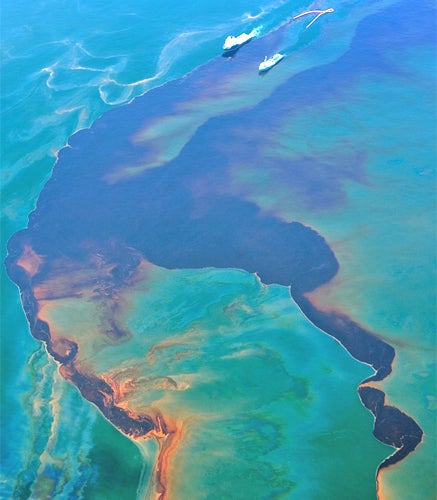US bank tells traders not to sign long-term deals with BP after credit rating dives

Your support helps us to tell the story
From reproductive rights to climate change to Big Tech, The Independent is on the ground when the story is developing. Whether it's investigating the financials of Elon Musk's pro-Trump PAC or producing our latest documentary, 'The A Word', which shines a light on the American women fighting for reproductive rights, we know how important it is to parse out the facts from the messaging.
At such a critical moment in US history, we need reporters on the ground. Your donation allows us to keep sending journalists to speak to both sides of the story.
The Independent is trusted by Americans across the entire political spectrum. And unlike many other quality news outlets, we choose not to lock Americans out of our reporting and analysis with paywalls. We believe quality journalism should be available to everyone, paid for by those who can afford it.
Your support makes all the difference.One of Wall Street's biggest banks has told its traders not to sign any contracts with BP that last more than a year, as concerns over its financial position continued to buffet the market.
An executive at Bank of America Merrill Lynch issued the edict on Wednesday, after a credit rating agency downgraded BP's debt. The bank's traders are no longer allowed to enter into oil contracts with BP that last beyond June 2011.
Limiting such contracts is one way that banks seek to protect themselves if they fear a trading partner might not be able to make good on its promises.
BP's oil trading division is an important contributor to its profits, but BofA Merrill Lynch is not a major player in the markets so the impact will be minor unless other banks follow suit – and there were no immediate signs that they would do so.
With oil continuing to spew into the Gulf of Mexico, and the long-term impact of the disaster still unquantifiable, BP's future has been hotly debated by investors in its shares and its debt.
The cost of insurance against a debt default by BP ballooned yesterday morning after President Barack Obama's television address, in which he again promised to hold the British oil giant accountable for all the costs of clean-up and compensation.
The cost of that insurance used to be tiny, because the scale and reliability of BP's oil revenues meant defaulting on its debts was seen as a remote possibility. Yesterday morning, however, the cost was at an all-time high – up 50 per cent just since Monday.
The pressure eased a little after the announcement that BP would put $20bn into a ring-fenced compensation fund, a move that added some clarity to a situation that some speculators feared could escalate out of control.
On Monday, the credit rating agency Fitch had added to the firestorm by downgrading BP's bonds to just above junk status, reflecting the growing risks.
Previously, BP had been expected to pay for the costs of the clean-up gradually, but that changed when the Obama administration began pushing for a ring-fenced fund into which the company must begin paying billions of dollars immediately.
"The scale of the rating action," Fitch explained, "has been partly driven by the increased risk that the balance between long-term and short-term cost payment may now be skewed much more heavily toward the near term."
Join our commenting forum
Join thought-provoking conversations, follow other Independent readers and see their replies
Comments